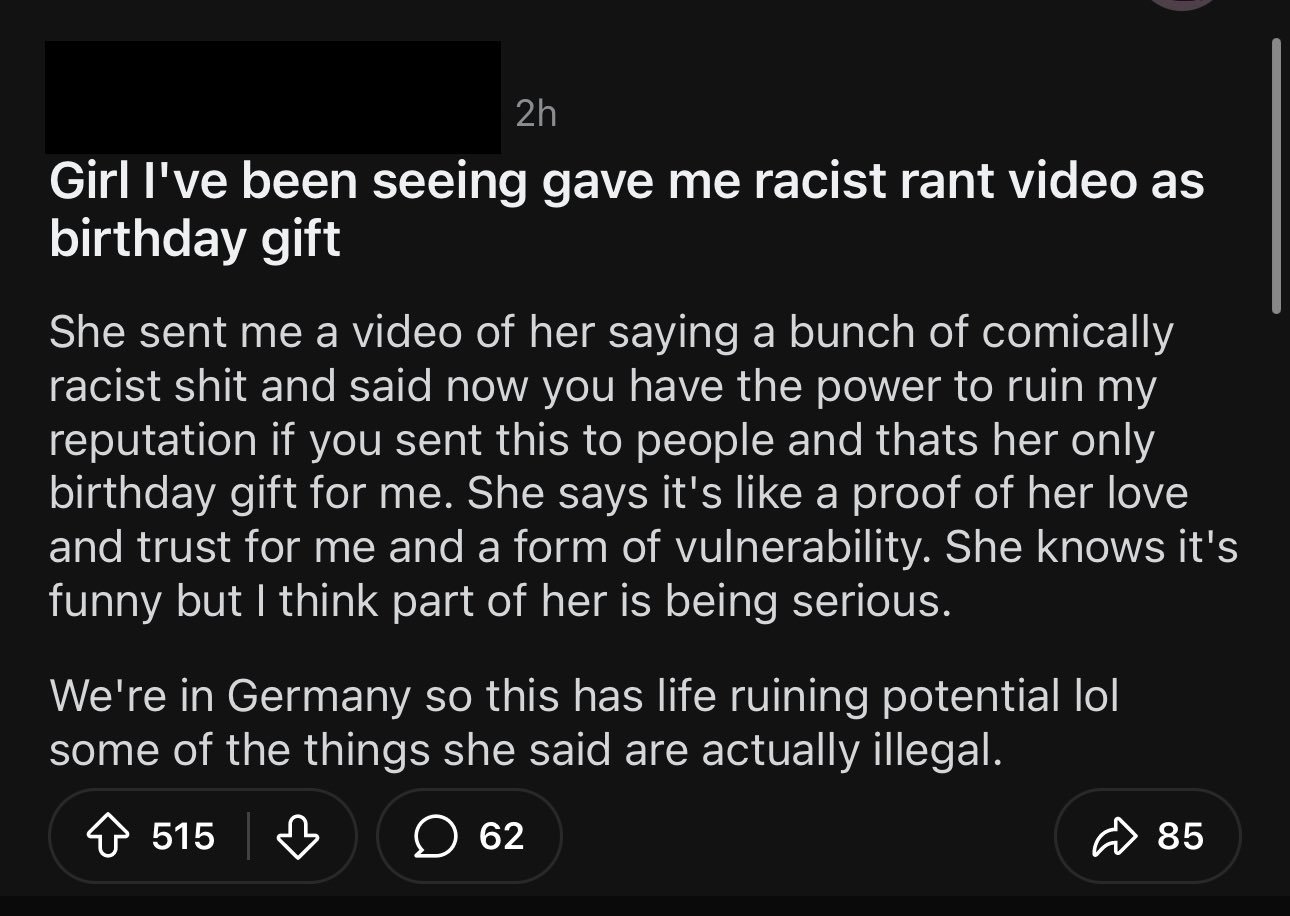this post was submitted on 24 Nov 2024
481 points (95.1% liked)
Funny
7819 readers
543 users here now
General rules:
- Be kind.
- All posts must make an attempt to be funny.
- Obey the general sh.itjust.works instance rules.
- No politics or political figures. There are plenty of other politics communities to choose from.
- Don't post anything grotesque or potentially illegal. Examples include pornography, gore, animal cruelty, inappropriate jokes involving kids, etc.
Exceptions may be made at the discretion of the mods.
founded 2 years ago
MODERATORS
you are viewing a single comment's thread
view the rest of the comments
view the rest of the comments

It's illegal to say you have a bomb at an airport and often to just generally seriously threaten people. Should that be covered under freedom of speech?
It should be illegal to have a bomb, not to say you have a bomb. If you say you have one and you don't, that's annoying, but it shouldn't be illegal.
It's a huge waste of time and resources and mass panic while everyone searches for this bomb that doesn't exist, and if you want to sneak in a real bomb, it's super easy to do if you just have 6 other people claim fake bombs first. It's not illegal right?
The two should have different consequences. Maybe look at it like the joking statement of having a bomb in certain places isn't illegal itself, but causing extra concern and panic requiring actions to ensure there isn't a threat has its own penalties. The intent of what you say or do is very important. Shouting fire in a crowded area when there isn't a fire is another example of the misuse of the freedom that could cause harm to others.
The original source of the "fire in a theater" example comes from a court case where a defendant was charged with passing out flyers opposing the draft into the first World War. The case was later overturned because it was not analogous to causing immediate panic or lawless action like a riot. I do wonder how social media's ability to directly influence people into action holds up to this ruling. As an example, one can post an opinion or call to action for something and be covered under the 1st, but imagine a streamer in real time inciting people to riot. Where's the line? Maybe it falls under what I said at the top, it's determined by the consequences and not by some perceived "future crime" that it could cause.